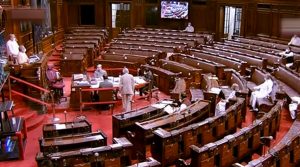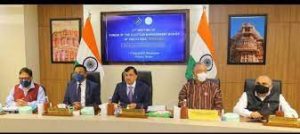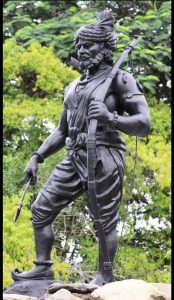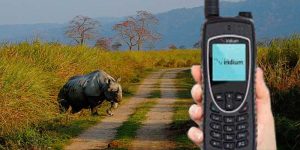Today Current Affairs: 13th August 2021 for UPSC IAS exams, State PSC exams, SSC CGL, State SSC, RRB, Railways, Banking Exam & IBPS, etc
Table of Contents
Consumer Dispute Redressal Panels:

The Supreme Court has given the Centre and the States eight weeks to fill the vacancies in the consumer disputes redressal commissions.
- The Court has also asked the Centre to conduct a comprehensive “legislative impact study” on the Consumer Protection Act, 2019.
- The laws have been made for the benefit of people. But, states are defeating the purpose for which the consumer protection laws have been made.
- The court also questioned if governments, both at the Centre and in the States, had deliberately kept the vacancies pending to dissuade people from filing complaints.
- There is litigation in the court regarding the tenure of tribunal members. The Centre is waiting for its outcome. Also, the to and fro of litigation and legislation had caused “confusion”, delaying appointments.
- The Consumer Protection Act, 1986 provides for a 3-tier structure of the National and State Commissions and District Forums for speedy resolution of consumer disputes. They are quasi- judicial bodies.
- Composition: Each District Forum is headed by a person who is or has been or is eligible to be appointed as a District Judge and each State Commission is headed by a person who is or has been a Judge of High Court.
- The provisions of this Act cover ‘goods’ as well as ‘services’. The goods are those which are manufactured or produced and sold to consumers through wholesalers and retailers.
- The services are in the nature of transport, telephone, electricity, housing, banking, insurance, medical treatment, etc.
- A written complaint can be filed before the District Consumer Forum/State Commission/ National Commission in respect of defects in goods and or deficiency in service.
- However, no complaint can be filed for alleged deficiency in any service that is rendered free of charge or under a contract of personal service.
- The remedy under the Consumer Protection Act is an alternative in addition to that already available to the aggrieved persons/consumers by way of civil suit.
- In the complaint/appeal/petition submitted under the Act, a consumer is not required to pay any court fees but only a nominal fee.
- As per the latest Consumer Protection Act , 2019 dispute redressal Commissions will be set up at District, State and National level, with pecuniary jurisdiction up to Rs one crore, Rs one crore to Rs 10 crore, and above Rs 10 crore, respectively.
- In case of unfair contracts, the State Commissions will hear complaints where the value is up to Rs 10 crore, and National Commissions will hear complaints above that value.
- These Commissions can declare unfair terms of such contracts to be null and void.
Termination Of A Session Of Parliament:

The Lok Sabha was adjourned Sine Die two days ahead of its scheduled date of August 13, as the Opposition protested over the Pegasus snooping controversy, farm laws and other issues.
Important Parliament Terminology:
- Zero Hour — time allotted to individuals members to raise important issues — was most affected and Question Hour, too, witnessed disruptions on most of the days.
- The House managed to pass 20 Bills, mostly without debate or participation from the Opposition.
- A sitting of Parliament can be terminated by adjournment or adjournment sine die or prorogation or dissolution (in the case of the Lok Sabha).
- Adjournment: It suspends the work in a sitting for a specified time, which may be hours, days or weeks.
- Adjournment sine die: It means terminating a sitting of Parliament for an indefinite period.
- In other words, when the House is adjourned without naming a day for reassembly.
- The power of adjournment as well as adjournment sine die lies with the presiding officer (Speaker or Chairman) of the House.
- Prorogation: The President issues a notification for prorogation of the session after the business of a session is completed and the presiding officer declares the House adjourned sine die. The President can also prorogue the House while in session.
- Dissolution: Only the Lok Sabha is subject to dissolution. Rajya Sabha, being a permanent House, is not subject to dissolution.
- A dissolution ends the life of the existing House, and a new House is constituted after general elections are held.
- The President is empowered to dissolve the Lok Sabha.
FEMBoSA:

Chief Election Commissioner of India and current Chairman, FEMBoSA Shri Sushil Chandra inaugurated the 11th Annual meeting of the Forum of the Election Management Bodies of SouthAsia (FEMBoSA) for the year 2021.
- The meeting in Virtual mode was hosted by the Election Commission of Bhutan. Sushil Chandra, CEC, as the outgoing Chair of FEMBoSA, virtually handed over the Chairmanship of FEMBoSA to Dasho Sonam Topgay, Chief Election Commissioner of Bhutan.
- The Forum of the Election Management Bodies of South Asia (FEMBoSA) was established at the 3rd Conference of Heads of Election Management Bodies of SAARC Countries held at New Delhi in 2012.
- The annual FEMBoSA meeting is held by rotation among the members.
- Besides ECI, the other 7 members are EMBs from Afghanistan, Bangladesh, Bhutan, Maldives, Nepal, Pakistan and Sri Lanka.
- The objectives of the Forum are to promote contact among the EMBs of the SAARC countries; share experiences with a view to learning from each other and cooperate with one another in enhancing the capabilities of the EMBs towards conducting free and fair elections.c cecd
National Commission For Indian System Of Medicine (Amendment) Bill, 2021:

Parliament has passed the National Commission for Indian System of Medicine (Amendment) Bill, 2021, with the Rajya Sabah approving it. The Lok Sabha had passed it earlier.
- The National Commission for Indian System of Medicine (Amendment) Bill, 2021 proposes to amend the National Commission for Indian System of Medicine Act, 2020.
- The 2020 Act replaced the Indian Medicine Central Council Act, 1970. The 1970 Act set up the Central Council of Indian Medicine to regulate the education and practice of the Indian Medicine system which includes Ayurveda, Yoga, Naturopathy.
- The 2020 Act replaced the Council with a National Commission for regulating education and practice of the Indian medicine system.
- The National Commission was constituted on June 11, 2021 to supersede the Central Council and on the same date the 1970 Act was repealed.
- The 2021 Bill specifies that all powers and functions of the Board of Governors (as under the 1970 Act) will be deemed to have been done under the 2020 Act and will continue to remain in force.
GSLV-F10/EOS-03:

The Indian Space Research Organisation’s second mission of the year — to place an earth observation satellite by a GSLV rocket — faced a setback as it could not be accomplished fully due to performance anomaly in the cryogenic stage of the rocket.
- The GSLV-F10/EOS-03 rocket successfully lifted off from the second launch pad at the spaceport. However, minutes later, they announced that the “mission could not be accomplished fully due to performance anomaly”.
- EOS-03 is a state-of-the-art agile Earth observation satellite which will be placed in a Geosynchronous Transfer Orbit by GSLV-F10. Subsequently, the satellite will reach the final geostationary orbit using its onboard propulsion system.
- EOS-03 was launched ahead of EOS-02, which has been delayed. EOS-02 is now scheduled for a launch in September-October.
- That launch will try out a new rocket — SSLV, or small satellite launch vehicle. Though India has developed four rockets till now — SLV, ASLV, and different versions of PSLV and GSLV — only two are currently operational.
- The SSLV is designed to cater to the increasing demand for launch of small satellites, mainly from businesses and universities; it costs much less and consumes less energy.
Rana Punja Bhil:

A dispute has erupted in Rajasthan over the hoisting of a flag on the statue of Rana Punja Bhil, a historical figure considered as a hero by the tribal Bhil community.
- After the Amagarh fort dispute, this is the second issue in Rajasthan within a month.
About Rana Punja Bhil:
- He was a contemporary of 16th century ruler of Mewar, Maharana Pratap.
- He is considered to be a significant character who bolstered the strength of Pratap during his battles with Mughal emperor Akbar.
- When Maharana Pratap was readying for the battle with Akbar, the tribal Bhil community voluntarily came to his assistance and at the time the Bhil army was commanded by Punja.
- Owing to his status as a commander, he was bestowed the title of Rana.
Bhil community:
- The Bhil are one of the largest tribal groups, living in Chhattisgarh, Gujarat, Karnataka, Madhya Pradesh, Maharashtra, Andhra Pradesh and Rajasthan.
- They are the biggest tribe in Rajasthan.
- They are classified as scheduled tribes in Rajasthan.
- The name is derived from the word ‘billu’, which means bow.
- Bhil women wear traditional saris while men are dressed in long frocks and pyjamas. The woman put on heavy ornaments made of silver, brass along with rosaries of beads and silver coins and earrings.
- The Bhil are known to be excellent archers coupled with deep knowledge about their local geography.
- Traditionally, experts in guerrilla warfare, most of them today are farmers and agricultural labourers. They are also skilled sculptors.
- They have exercised significant influence in the Mewar region and throughout the past, the Rajput rulers of the region have forged alliances with the tribal group.
Kaziranga Has Become The First In The Country To Use Satellite Phones:

Kaziranga has become the first in the country to use satellite phones, which are generally used by the law-enforcing agencies.
- The satellite phones will give an edge to the forest personnel over the poachers and also during emergencies like floods.
- The public is barred from using satellite phones in India. Satellite phones can connect from anywhere as they are directly connected to satellites around the world and do not depend on terrestrial mobile networks, as cellphones do.
- It is located in the State of Assam and covers 42,996 Hectare (ha). It is the single largest undisturbed and representative area in the Brahmaputra Valley floodplain.
- Legal Status:
- It was declared as a National Park in 1974.
- It has been declared a Tiger Reserve since 2007. It has a total tiger reserve area of 1,030 sq km with a core area of 430 sq. km.
- International Status:
-
- It was declared a UNESCO World Heritage Site in 1985.
It is recognized as An Important Bird Area by Bird Life International.
- It was declared a UNESCO World Heritage Site in 1985.
General Insurance Business (Nationalisation) Amendment Bill, 2021:

The General Insurance Business (Nationalisation) Amendment Bill, 2021, was passed by both the houses of the parliament.
- It seeks to amend the General Insurance Business (Nationalisation) Act, 1972.
Key Provisions of the Bill:
- It seeks to remove the mandatory requirement of the Central government holding not less than 51% of the equity capital in a specified insurer.
- It defines general insurance business as fire, marine or miscellaneous insurance business.
- It excludes capital redemption and annuity from certain businesses from the definition.
- Capital redemption insurance involves payment of a sum of money on a specific date by the insurer after the beneficiary pays premiums periodically.
- Under annuity certain insurance, the insurer pays the beneficiary over a period of time.
- It will not apply to the specified insurers from the date on which the central government relinquishes control of the insurer. Here control means:
Power to appoint a majority of directors of a specified insurer. - To have power over its management or policy decisions.
- It empowers the central government to notify the terms and conditions of service of employees of the specified insurers.
- It provides that schemes formulated by the central government in this regard will be deemed to have been adopted by the insurer.
- The board of directors of the insurer may change these schemes or frame new policies.
- Further, powers of the central government under such schemes will be transferred to the board of directors of the insurer.
- It specifies that a director of a specified insurer, who is not a whole-time director, will be held liable only for certain acts which includes the acts which have been committed:
- With his knowledge, attributable through board processes.
- With his consent or connivance or where he had not acted diligently.
60th Public Enterprises (PE) Survey 2019-20:

The 60th Public Enterprises (PE) Survey 2019-20 was released by the Department of Public Enterprises (DPE), Ministry of Finance.
- It is the single largest source of information on Central Public Sector Enterprises (CPSEs) and acts as a basis for informed policy making.
- The government has reallocated the Department of Public Enterprises (DPE) to the finance ministry from the ministry of heavy industries.
About Public Enterprises (PE) Survey:
- PE Survey is a 100% enumeration of the CPSE universe. It captures essential statistical data for all CPSEs on various financial and physical parameters.
PE Survey divides CPSEs into five sectors namely:
- Agriculture,
- Mining & Exploration,
- Manufacturing, Processing & Generation,
- Services,
- Enterprises Under Construction.
- The Department of Public Enterprises (DPE) started bringing out the Public Enterprises Survey from the financial year 1960-61 on the recommendations of the Estimates Committee of the 2nd Lok Sabha, 73rd report (1959-60).
About DPE And CPSEs:
- DPE is the nodal department for all the Central Public Sector Enterprises (CPSEs) and formulates policy pertaining to CPSEs.
- According to DPE, CPSEs mean those Government companies, besides Statutory Corporations, wherein more than 50% of the share in equity is held by the Central Government.
- The subsidiaries of these companies, if registered in India, are also categorized as CPSEs.
- It does not cover departmentally run public enterprises, banking institutions and insurance companies.
- CPSEs are classified into 3 categories namely Maharatna, Navratna and Miniratna.
- Presently, there are 10 Maharatna, 14 Navratna and 74 Miniratna CPSEs.
Quality Of Life For Elderly Index:

The Economic Advisory Council to the Prime Minister (EAC-PM) released the Quality of Life for Elderly Index.
- The share of elders, as a percentage of the total population in the country, is expected to increase from around 7.5% in 2001 to almost 12.5% by 2026, and surpass 19.5% by 2050.
- EAC-PM is a non-constitutional, non-statutory, independent body constituted to give advice on economic and related issues to the Government of India, specifically to the Prime Minister.
- The Index has been created by the Institute for Competitiveness at the request of EAC-PM and it sheds light on an issue often not mentioned- problems faced by the elderly.
- Institute for Competitiveness, India is an international initiative centered in India, dedicated to enlarging and purposeful disseminating of the body of research and knowledge on competition and strategy.
- It identifies the regional patterns of ageing across Indian States and assesses the overall ageing situation in India.
- Ageing is a continuous, irreversible, universal process, which starts from conception till the death of an individual.
- However, the age at which one’s productive contribution declines and one tends to be economically dependent can probably be treated as the onset of the aged stage of life.
- National Elderly Policy defines people in the 60+ age group as elderly.
- It will promote healthy competition among States through fair rankings and highlights the pillars and indicators they can improve.
Major Findings:
State-wise Rankings:
- Rajasthan and Himachal Pradesh are top-scoring regions in Aged and Relatively Aged States, respectively.
- The Aged States refer to States with an elderly population of more than 5 million, whereas Relatively Aged States refer to States with an Elderly population of less than 5 million.
- Chandigarh and Mizoram are top-scoring regions in Union Territory and North-East States category.
Pillar-wise Performance:
- The Health System pillar observes the highest national average, 66.97 at an all-India level, followed by 62.34 in Social Well-being.
- Financial Well-being observes a score of 44.7, which is lowered by the low performance of 21 States across the Education Attainment & Employment pillar, which showcases scope for improvement.
- States have performed particularly worse in the Income Security pillar because over half of the States have a score below the national average in Income Security, which is the lowest across all pillars.




